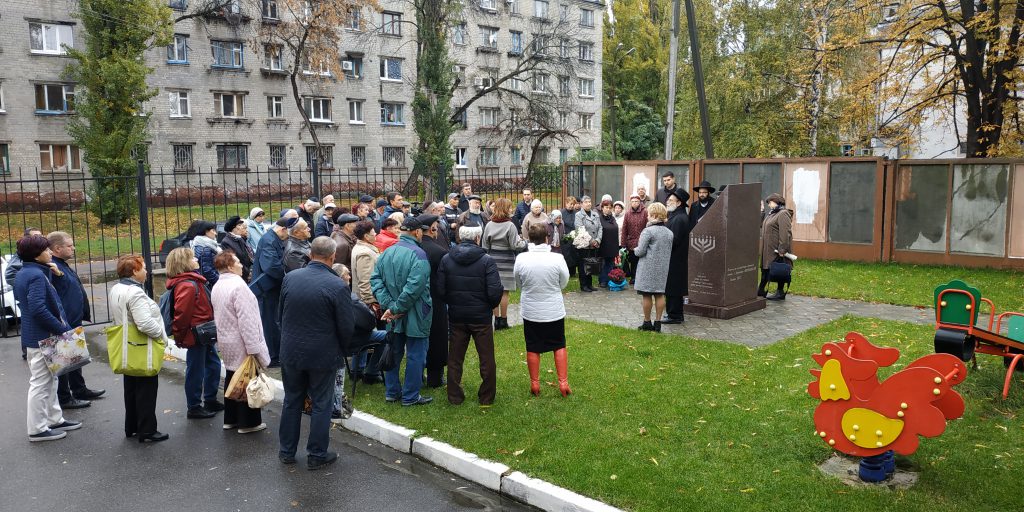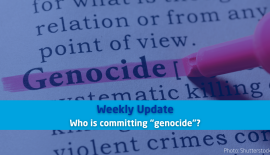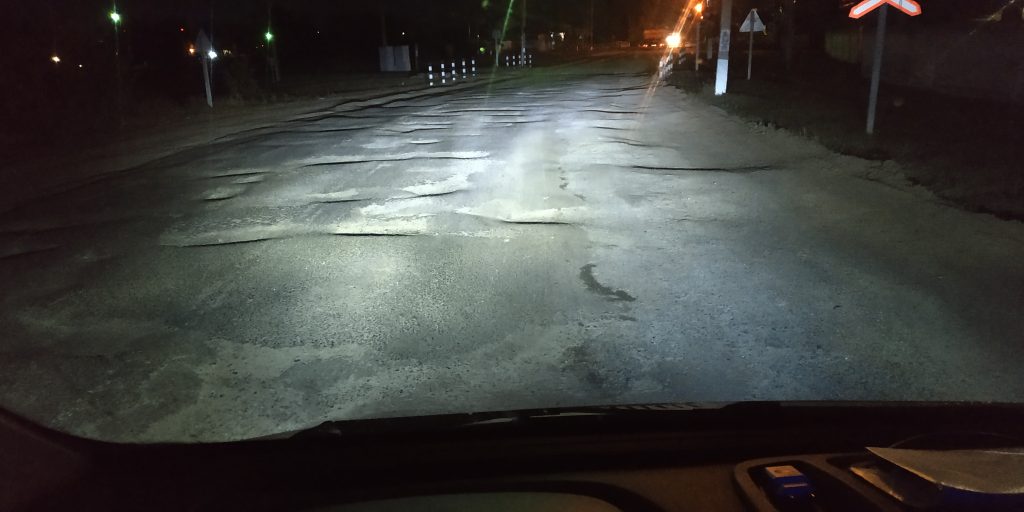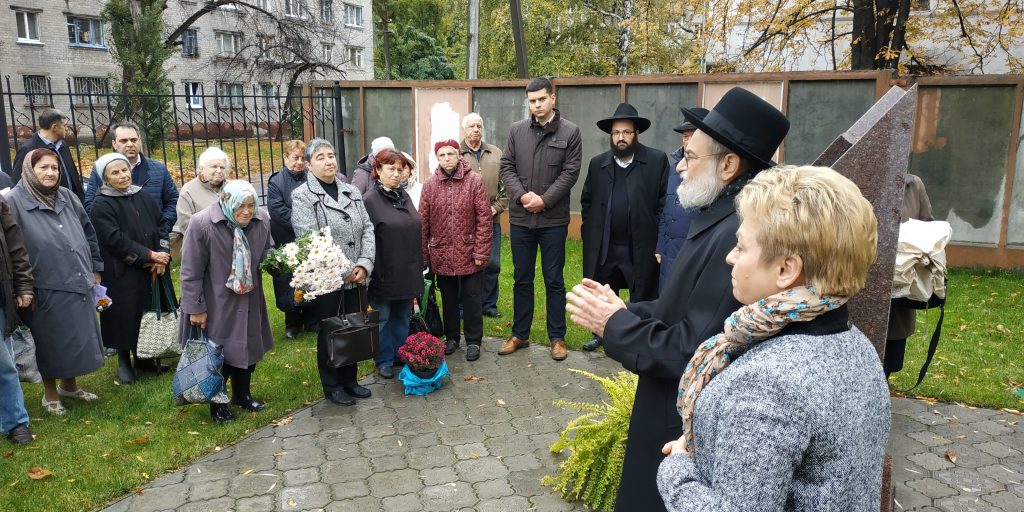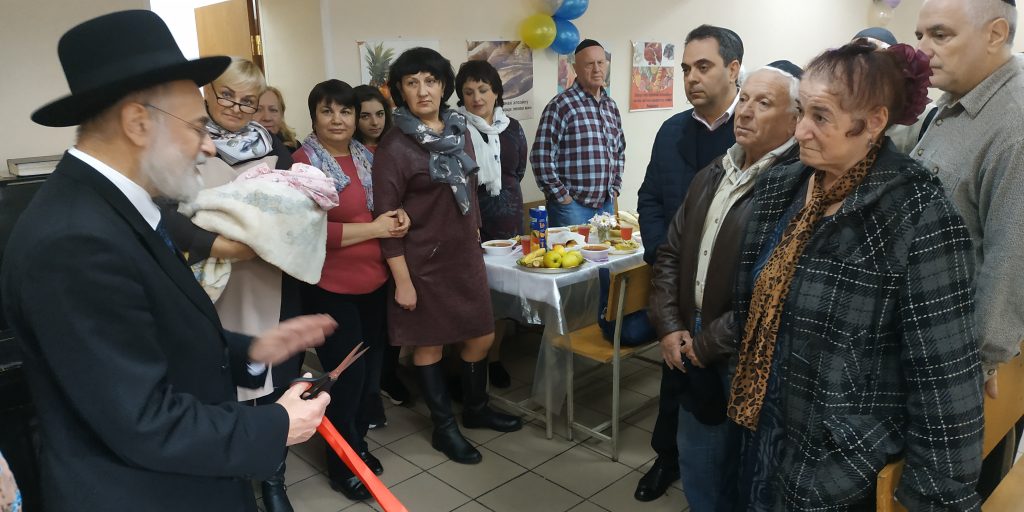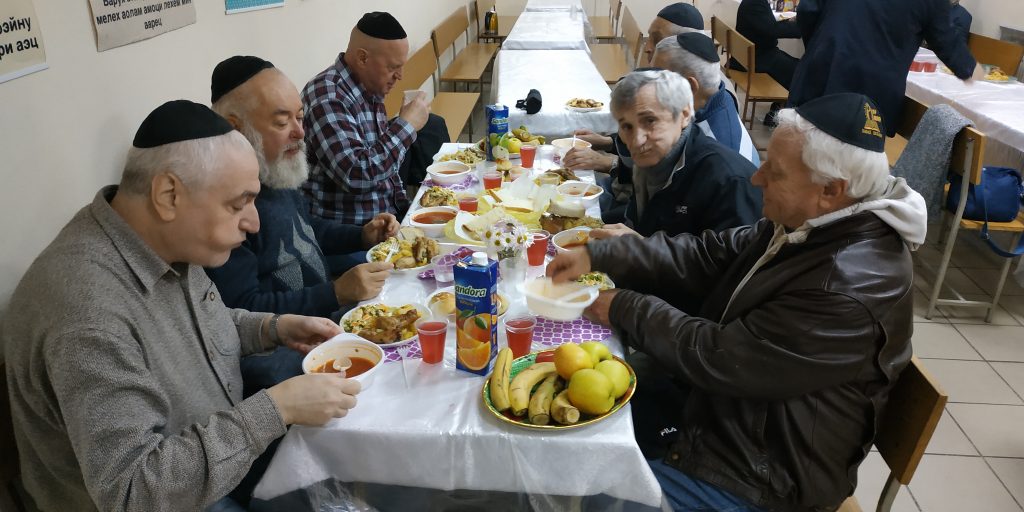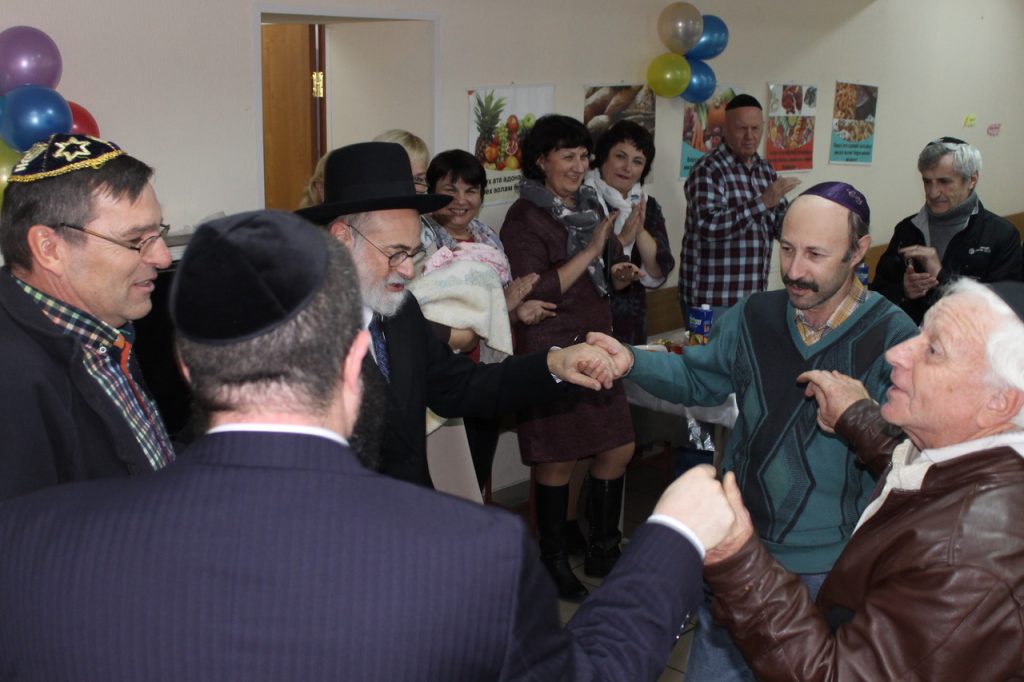The Jerusalem of Ukraine
Journal of a special trip by Chief Rabbi Jacobs in Ukraine (1)-
Around midnight we arrive at our first destination in Ukraine, after a journey of more than five hours in a kind of driving washing machine, along roads full of deep potholes, in a van without normal suspension, but with a brilliant driver who, while bypassing the potholes also has to look where the road starts and the roadside ends. Lighting or white stripes are unprecedented quantities here. In Krimenchuk the Rabbi and his wife are already waiting impatiently for us.
During our drive I look at the small houses that were once populated by Jews, and the area was called the ‘Jerusalem of Ukraine’. Sixty percent of the inhabitants were Jewish. They were slaughtered. The Jewish population was not taken away to the concentration camps; however they were murdered on the spot. Many buried alive, to spare bullets.
The local rabbi builds on the ruins of the past, cheerful and full of good courage. They have lived here for more than twenty years. Built a new synagogue, set up a day school, visit the elderly, poor, traumatized. His story testifies of commitment and gratitude, but also of anxiety, because poverty is great among the Jewish people. Anti-Semitism is not present here, say Rabbi Salomon and his wife. Except the monument in memory of the eight thousand Jewish women and children is daubed from time to time with swastikas.
The Jewish owner of the tiny hotel is waiting for us at two o’clock at night. He finds it a great honour that we stay in his hotel. After too little hours of deep sleep, Koen Carlier of Christians for Israel and I go to the synagogue. A commemoration will take place after the morning service. Seventy-seven years ago, Krimenchuk was liberated. But it was no longer ‘The Jerusalem of Ukraine’. Ninety percent of the buildings had been destroyed, and of the 60 percent Jews, barely one percent survived. At the monument, in memory of the horrors, more and more people gather. Representatives of the local government, local television, journalists, Jews. Commemorate, warning for the future and gratitude, that despite all, there is still something left: ‘am Ysirael chai – the Jewish people live’ is emphasized by the various speakers.
And then to the park. At this place the Jewish people were slaughtered. A beautiful park, but no memory of the great drama. There is no memorial at the place where the mortal remains of Jewish Krimenchuk lie. They placed a sign somewhere else, where they certainly were not dumped. Sadly a few stuffed animals lie in front of the monument. Well meant, but the children cannot play anymore…
Back to the synagogue, the domain of the rabbi. I have the opportunity to officially open the fifth soup kitchen that Christians for Israel sponsors. Koen and I cut a ribbon. Perhaps this is a symbol for partial cutting of the past. Go on, despite everything. Of course not forgetting or denying history, but never let the painful past paralyze the future.
The guests who come here to eat every day, clap enthusiastically and gratefully. A woman approaches me and tells me that her only child lives in Israel now. During the meal a man, born in 1932, stands up to thank the rabbi, to thank me for coming and Christians for Israel for their financial support.
In my speech I ask Rabbi Salomon if he could ever have imagined that the meals in the soup kitchen of his synagogue would be funded by ‘Christians for Israel’ with affiliates in Europe and worldwide? He indeed never dared to dream that! After a spontaneous dance, where everyone sings along with the ‘simantov u mazzeltov ‘, the guests sit down at the table to enjoy their daily hot meal. We join them. I enjoy the meal, but even more the grateful faces, radiant with joy.
The opening of this soup kitchen will not reach the front pages of the newspapers. It is not news, but it is something very big! How grateful I am to be here to experience the ‘Jerusalem of Ukraine’.
More journal entries:
